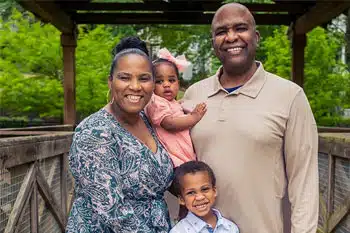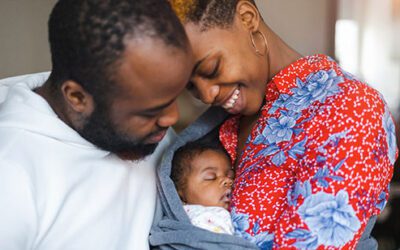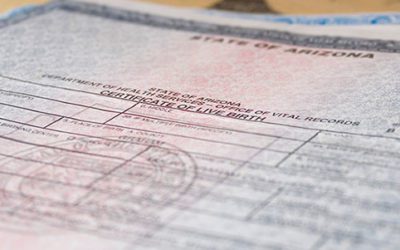
Many prospective parents ask us directly, “What will disqualify you from adopting a child?” This guide will walk you through the most common reasons adoption agencies, social workers, or state laws may determine a family is not eligible.
Table of Contents
- What Will Disqualify You From Adopting a Child: Common Reasons
- Do Medical Conditions Disqualify You From Adopting a Child?
- Will a Criminal Record Disqualify You From Adopting a Child?
- Other Factors That May Disqualify You From Adoption
- How Lifetime Adoption Screens Families for Disqualification Risks
What Will Disqualify You From Adopting a Child: Common Reasons
Here are the most common reasons you can’t adopt through Lifetime or other adoption agencies. Our team, the independent social worker who performs the home study, or our home study providers in Florida may discover these items.
- Age, especially if the applicant is of an advanced age
- Poor Health
- Criminal history or a criminal record, especially felonies, violent crimes, or crimes involving children (this may include family members or anyone living in the potential adoptive parent’s home)
- Registered sex offender
- Records of domestic violence
- Lack of income sufficient to provide for a child
- Unsafe living conditions or lifestyle
- History of child abuse or neglect
- Lack of insurance
- Narrow adoption preferences for what you seek in a child (e.g., age, race, gender, etc.)
- Unrealistic expectations for modern adoption (e.g., desiring only a closed adoption)
- Loss of previous foster care license
“The adoptive couple will need to share whether or not they have been directly or indirectly exposed to circumstances such as alcohol/drug abuse, physical abuse, sexual abuse, mental abuse, jail, counseling, or financial issues. Truth be told, most have had some sort of exposure,” shares Linda Rotz, Director of Adoption Services at our Florida adoption agency.
Once you discuss any issues with the social worker, they will evaluate and address the nature of the problems accordingly. Sometimes, a couple must take additional training or show growth and change in a specific area. Certain felonies would disqualify a family, but each state has its own statutes, so it would be something the social worker would have to evaluate with you.
Do Medical Conditions Disqualify You From Adopting a Child?
While not every health issue will disqualify you from adopting a child, we prioritize ensuring that you are physically and mentally capable of providing long-term care for your child. Most common chronic health conditions like anxiety or diabetes typically won’t prevent you from adopting.
As long as you are actively managing your illness and it doesn’t hinder your ability to care for your child, your health should not disqualify you from adoption. This requirement is not intended to discriminate, but rather to ensure that you will be available to care for your child in the future.
Will a Criminal Record Disqualify You From Adopting a Child?
A key factor in determining eligibility for adoption is your criminal background. Regardless of the agency you choose, all prospective adoptive parents must undergo a home study, which includes background checks.
Some criminal records will disqualify you from adoption, but others may not automatically prevent you. For non-violent offenses, your adoption professional may review the circumstances with you to understand the nature of the charge. Misdemeanor violent offenses are often evaluated individually by a judge.
Certain felonies found on your record may disqualify you from adopting. These offenses are typically grounds for disqualification:
- Domestic violence
- Child abuse
- Abandonment
- Neglect
- Violent offenses
- Drug-related offenses
Other Factors That May Disqualify You From Adoption
Your financial situation is another important factor in determining whether you can adopt. You don’t need to be extremely wealthy or debt-free, just financially stable. As long as you can adequately support both yourself and a child, your finances won’t prevent you from adopting. Many families worry about what will disqualify them from adopting a child, but often issues like finances or housing can be improved over time.
A secure and stable living environment is essential for a child’s emotional and physical well-being. Living in an unsafe neighborhood, frequent moves, or an overcrowded or unsuitable home may lead to disqualification. We prioritize placing children in environments that foster growth, security, and long-term stability.
Your home study provider will carefully assess your family dynamics to ensure the child will be placed in a home where they can thrive emotionally. Persistent relationship or marital issues, especially if they create tension or instability, may signal that the environment is not ideal for raising a child.
Finally, a history of domestic violence is a serious concern, even if it’s no longer occurring. Since Lifetime prioritizes the safety and well-being of the child, any past incidents of violence raise red flags about the potential risks in the home. Our goal is to place children in environments that provide love, security, and the emotional stability necessary for them to grow into well-adjusted individuals.
How Lifetime Adoption Screens Families for Disqualification Risks
If you’re worried about the factors that disqualify you from adoption, our team can help you understand your options. Our screening process goes beyond the basic adoption eligibility requirements set by state law. In other words, we implement our screening process in addition to the minimum adoption requirements to meet the needs of the specific expectant mother requests we are receiving.
The most important task for our adoption professionals is to look out for the well-being of our birth mothers and their children. We do that by helping birth families find the perfect family for their babies. All of our services are free for birth mothers so they can focus on what’s most important: finding a new home for their child and deciding on the limits of the open adoption arrangement.
Expectant mothers put their trust in Lifetime Adoption. They want our caring and compassionate adoption professionals to think first and foremost about the future welfare of their baby. We work hard to earn this trust during every step of their adoption process.
Additionally, our experienced staff knows to listen to what expectant mothers are looking for in adoptive families. We must have a balance of adoptive parents with various interests and traits, living in different parts of the country, and being open to a wide array of adoption preferences.
That’s one of the reasons we are so thorough in our screening process for adoptive families. In fact, we accept just 17% of all adoptive parents who apply to our adoption agency.
Finally, adoptive families we accept into our program may find that the only disqualification that matters is that of the birth mother. Ultimately, the choice of an adoptive family is hers — and hers alone.
But not to worry; we take care of our adoptive families, too. We also work hard for them so they can realize their dream of adopting a child and making them part of the family.
If you are concerned about what will disqualify you from adopting a child, remember that every case is unique. Our adoption professionals are here to answer your questions and guide you through the process so you know exactly where you stand.
For additional information on this topic, browse the resources the Child Welfare Information Gateway offers. It’s part of the U.S. Department of Health & Human Services. They have lots of information about the adoption requirements for adopting a baby, adoption home studies, and much more.
You can always contact Lifetime Adoption if you have any questions.
Editor’s Note: This article was originally published on March 10, 2021, and has since been updated.
Founder of Lifetime Adoption, adoptive mom, adoption expert, and Certified Open Adoption Practitioner (C.O.A.P).
Since 1986, adoption expert Mardie Caldwell has been dedicated to bringing couples and birth parents together in order to fulfill their dreams.
“Many years ago, I was also searching for a child to adopt. We didn’t know where or how to get started. Through research, determination, and a prayer, our dream of a family became reality. I started with a plan, a notebook, assistance from a caring adoption consultant and a lot of hard work; this was my family I was building. We had a few heartaches along the way, but the pain of not having children was worse!
Within weeks we had three different birth mothers choose us. We were overwhelmed and delighted. Many unsettling events would take place before our adoption would be finalized, many months later. Little did I know that God was training and aligning me for the adoption work I now do today. It is my goal to share with our families the methods and plans which succeed and do not succeed. I believe adoption should be affordable and can be a wonderful “pregnancy” for the adoptive couple.
I have also been on both sides of infertility with the loss of seven pregnancies and then conceiving by new technology, giving birth to a healthy daughter. I have experienced first-hand the emotional pain of infertility and believe my experience allows me to serve your needs better.
It is my hope that for you, the prospective parents, your desire for a child will be fulfilled soon.”





0 Comments